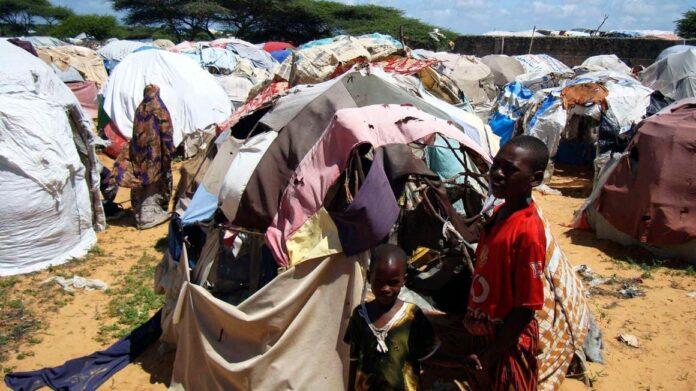MOGADISHU (KAAB TV) – While the Somali army prepares to take over responsibility for the country’s security from African Union peacekeeping forces, which have been protecting civilians and international organisations for the past 17 years, experts say four million children in Somalia have been affected by conflict and climate change.
Isha Dyfan, the UN’s independent expert on the human rights situation in Somalia, announced that she met with government officials, UN personnel, children’s rights campaigners, and humanitarian organisations operating in Somalia.
“I noted the slow progress made in the implementation of the National Action Plan for children, and I would like to call on the Federal Government to take steps to promote and protect the rights of women and children,” she said.
Ms Dyfan said that children make up 60-70 percent of internally displaced individuals and other vulnerable people, all of whom are victims of forced relocation and its consequences, and that children are especially exposed to mines and hazardous materials in newly liberated areas.
Terrorists, Drought, and Floods: Somalia’s Postwar Enemies.
After decades of isolation, Somalia has just begun to get support from the international community. Last December, the country qualified for debt cancellation under the HIPC project, resulting in up to $4.5 billion in debt reduction.
The United Nations expert advised Somalia to use the debt forgiveness and pass the money – as well as the money they obtain from other loans that the government is financing the country’s restoration – to identify sectors produce healthy, educated people.
This is consistent with the African Union’s demand that 15% of Somalia’s new debt be allocated to education and health.
The Somalia security conference, held in December 2023 at the United Nations headquarters in New York, set the government’s strategic priorities as well as a six-year strategy for the security sector, including international support requirements.
Officials from the United Nations have also classified the degree of sexual and gender-based violence as “epidemic,” noting rape, gang rape, deaths, and impunity for perpetrators.
Despite this, Somalia faces security concerns, with Al Shabaab continuing to assault civilians, particularly women and children.
Al-Shabaab attack: rebirth or fight for survival?
The Federal Government of Somalia has also begun reforms by introducing many efforts to protect children’s rights throughout armed crises.
These include steps to prohibit the recruitment and use of child soldiers, as well as the establishment of age verification systems and biometric registration within the Somali armed forces to assure compliance and the elimination of child soldier branding.
United Nations authorities have described the extent of sexual and gender-based violence as a “epidemic,” with reports of rape and gang rape, murder, and impunity for perpetrators.
During a meeting with Somali officials, Ms Dyfan urged the government to increase its ability to investigate and prosecute criminals so that survivors could disclose crimes without fear.
Rape victims and survivors face retaliation and humiliation with little or no protection, and they have no recourse to justice or effective remedies.


